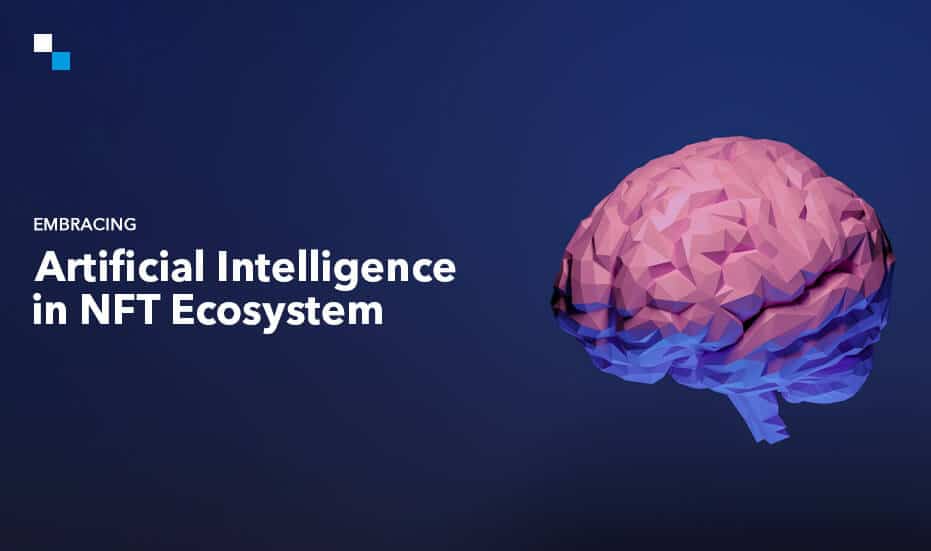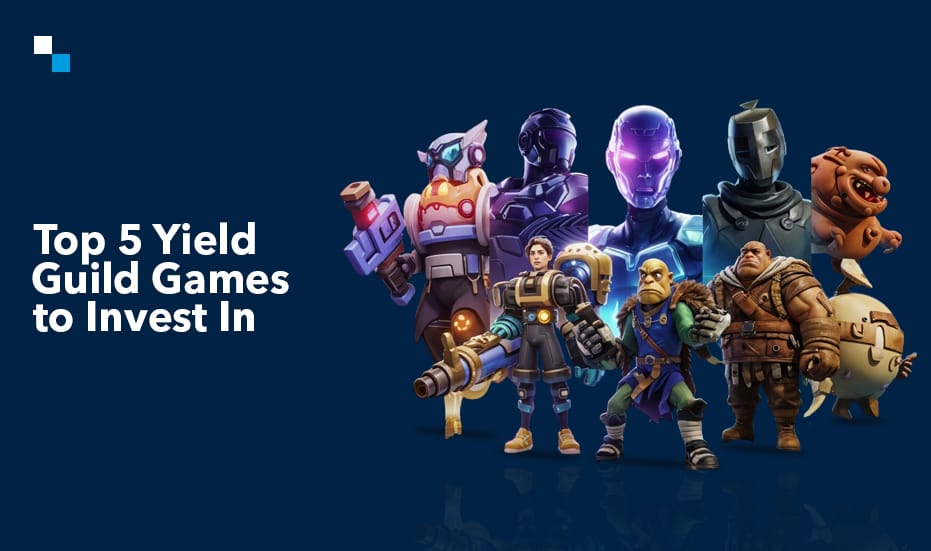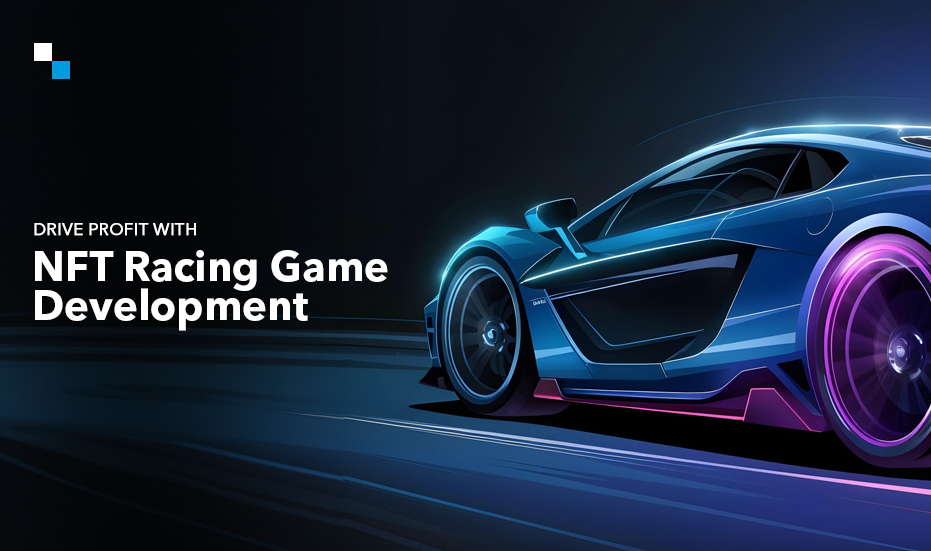
What Makes Algorand An Ideal Blockchain For ICO Development?
July 10, 2024
The Importance of UI/UX Design in White Label Decentralized Exchange Development
July 10, 2024Artificial intelligence (AI) is rapidly reshaping every industry. From automating tasks in finance to personalizing experiences in retail, AI’s ability to analyze data and make intelligent predictions is creating a wave of innovation. NFTs are not immune to this transformation. AI is being used to generate unique NFT art, personalize recommendations for collectors, and even enhance security within the NFT development ecosystem. This synergy between AI and NFTs highlights a broader trend: digital transformation is revolutionizing how we interact with and own digital assets across all industries.
Impact of AI on NFT Development
Artificial Intelligence is rapidly transforming how businesses operate across all major industries. Its ability to analyze vast amounts of data, automate tasks, and make intelligent predictions is disrupting traditional methods and creating exciting new possibilities. Here’s a glimpse into AI’s influence across various sectors, highlighting how NFTs are part of this larger trend:
- Finance: AI automates fraud detection, personalizes financial products, and even powers algorithmic trading, all with increased accuracy and efficiency. Similarly, NFTs are revolutionizing investing by creating new asset classes (like fractional ownership of real-world assets) and streamlining investment processes.
- Healthcare: AI analyzes medical data to personalize treatment plans, diagnose diseases earlier, and accelerate drug discovery. NFT development are emerging in healthcare to securely store patient data, track medical records, and even represent ownership of medical research findings.
- Manufacturing: AI optimizes production lines, predicts equipment failures, and personalizes products based on customer data. The rise of NFT-based “digital twins” allows for real-time monitoring and optimization of physical assets in manufacturing.
- Retail: AI personalizes recommendations, optimizes supply chains, and analyzes customer sentiment. NFTs are being used in retail to track product provenance, create exclusive customer experiences, and represent ownership of digital merchandise. One potential application is to create NFT with AI for unique product designs or even to represent ownership of customized physical goods.
- Entertainment & Media: AI powers recommendation engines for streaming services, personalizes content creation, and even generates synthetic media. NFTs are transforming entertainment by offering ownership of digital collectibles, virtual concert tickets, and exclusive in-game items.
Learn how to create an NFT collection with AI in this blog.
Use Cases of AI in NFT Space
From generating one-of-a-kind art to safeguarding valuable digital assets, AI’s influence is creating a wave of innovative applications that are transforming how we experience, collect, and interact with NFTs. Let’s dive deeper and explore the most prominent use cases of AI in NFT space.
1. Generative Art and AI NFTs
The world of art is undergoing a fascinating transformation. Generative Art NFTs, a fusion of human creativity and artificial intelligence, are pushing the boundaries of artistic expression. Imagine feeding an AI algorithm your artistic preferences, from brushstrokes and color palettes to specific themes and styles. The AI then uses its vast knowledge of art history and its ability to analyze patterns to generate entirely unique pieces that reflect your vision. This is the power of AI in generative art, and it’s unlocking incredible possibilities for both artists and collectors.
- Unmatched Creativity: AI can explore artistic styles and generate variations beyond human imagination. It can create new artistic movements or blend existing ones in unique ways, leading to groundbreaking aesthetics.
- Exploration of Themes: While you create NFT with AI, feed the AI-specific themes, emotions, or concepts, and watch it generate art that visually interprets those ideas. This opens doors for artists to express complex ideas in captivating ways.
- Infinite Iterations: Gone are the days of painstakingly crafting each variation. With AI, artists can generate countless iterations based on their initial concept, allowing for rapid exploration and refinement of ideas.
- Collaborative Creation: The artist-AI partnership is a powerful one. AI acts as a tool that amplifies the artist’s vision, allowing them to create art that would be impossible with traditional methods.
- Democratic Access: AI tools are becoming more accessible, allowing even artists without extensive coding experience to experiment with generative art. This democratizes the art creation process and fosters a new wave of artistic talent.
- Evolutionary Art: Some generative art NFTs are programmed to evolve over time, adding a new layer of interactivity and dynamism to the artwork. This creates a unique experience for collectors who can witness transformation in their NFT development lifecycle.
2. AI-Assisted Authentication
The NFT market thrives on authenticity and trust. With the potential for digital forgeries, collectors need a reliable way to ensure they’re acquiring genuine digital assets. Here’s where AI-assisted authentication steps in. This powerful technology utilizes machine learning algorithms to act as a digital art detective, meticulously examining NFTs to verify their legitimacy and provenance.
- Eagle-Eyed Detection of Forgeries: AI algorithms are trained on massive datasets that include AI-generated art. This allows them to identify inconsistencies in style, brushstrokes, or even minute details in the code specific to the AI used to “Create NFT with AI” works, effectively weeding out forgeries of these unique creations.
- Immutable Provenance Tracking: AI can analyze the blockchain ledger to track the ownership history of an NFT. By scrutinizing transaction data and identifying any suspicious activity, AI can establish a clear and tamper-proof record of provenance, ensuring collectors acquire NFTs with a legitimate history.
- Proactive Threat Detection: AI is constantly learning and evolving. As new forgery techniques emerge, AI can adapt its detection methods to stay ahead of the curve. This proactive approach safeguards the NFT ecosystem from future threats.
- Scalability and Efficiency: Manually verifying the authenticity of NFTs can be a slow and tedious process. AI automates this process, enabling platforms to efficiently handle large volumes of NFTs while maintaining a high level of accuracy.
- Building Trust and Transparency: By ensuring the authenticity of NFT development, AI fosters trust and transparency in the NFT marketplace. This benefits both collectors and artists, creating a more secure and reliable environment for everyone involved.

3. Data-Driven Pricing
The NFT market is a dynamic and exciting space, but one challenge collectors often face is determining the fair value of an NFT. Unlike traditional assets with established valuation methods, NFTs can be subjective and influenced by various factors. Here’s where AI steps in as a game-changer. Data-driven pricing, powered by AI, is revolutionizing the NFT landscape by providing a more objective and informed approach to NFT valuation.
- Market Analysis: AI algorithms can analyze vast amounts of data on past NFT sales, including prices, rarity levels, and artist popularity. This allows them to identify trends and patterns, providing valuable insights into what similar NFTs have sold for in the past.
- Rarity Recognition: Some NFTs are rarer than others, and rarity plays a major role in price. AI can analyze the specific characteristics and attributes of an NFT to determine its rarity within a collection. This helps collectors understand the relative scarcity of the NFT and its potential value.
- Artist & Collection Reputation: The reputation of the artist or collection behind an NFT can significantly influence its price. AI can analyze the historical sales data of an artist’s NFTs or the overall performance of a collection to assess its reputation and potential for future growth.
- Dynamic Price Adjustments: The NFT market is constantly evolving. While you create NFT with AI, it can be used to create dynamic pricing models that automatically adjust the price of an NFT based on real-time market data. This ensures that the NFT remains competitively priced and reflects its current value.
4. Personalized NFT Experiences
The NFT landscape is brimming with possibilities, but navigating the vast array of options can be daunting. This is where AI steps in as a personalized guide. By harnessing the power of artificial intelligence, NFT marketplaces can curate experiences that cater to your unique interests and preferences. Gone are the days of endless browsing – artificial intelligence personalizes your NFT journey, surfacing hidden gems and fostering a deeper connection with the NFT world.
- Curated Recommendations: AI analyzes a user’s browsing behavior, past purchases, and social media interactions to understand their artistic preferences. Based on this data, AI can recommend NFTs that align with their interests, whether it’s a specific artist’s style, a particular genre of digital art, or a collection with a unique theme.
- Predictive Insights: AI doesn’t just analyze past behavior; it can also predict future interests. By learning from user interactions, AI can recommend NFTs that users haven’t even discovered yet, but that they’re likely to appreciate based on their evolving preferences.
- Dynamic Discovery: Gone are the static search bars. AI personalizes search results in real-time, adjusting them based on user interactions. The more a user engages with specific types of NFTs, the more AI refines the search results, surfacing even more relevant content.
- Personalized Collection Management: Managing a growing NFT development collection can be challenging. AI can assist collectors by categorizing their NFTs based on style, artist, or other relevant criteria. This allows for easier exploration and organization of a user’s digital assets.
- Exclusive Access and Experiences: AI can be used to identify collectors with a strong affinity for a particular artist or collection. These collectors can then be offered exclusive access to new NFT drops, behind-the-scenes content, or even personalized interactions with the artist.
5. NFT Legal & Compliance Management
Venturing into uncharted territory often comes with legal and regulatory complexities. For creators and platforms alike, ensuring compliance with evolving regulations and mitigating potential legal risks is crucial. This is where you realize the power to create NFT with AI. AI-powered legal and compliance management empowers participants in the NFT space to navigate the intricacies of the legal landscape, fostering a more secure and responsible environment for everyone involved.
- Compliance Risk Assessment: AI can analyze legal documents, regulatory frameworks, and industry best practices to identify potential compliance risks associated with specific NFT offerings. This allows creators and platforms to proactively address these risks and ensure their NFTs comply with relevant regulations.
- Smart Contract Auditing: Smart contracts are the foundation of NFTs, but vulnerabilities can pose legal and financial risks. AI-powered tools can analyze smart contracts for potential coding errors or security loopholes that could be exploited by malicious actors.
- Automated Regulatory Monitoring: The legal landscape surrounding NFTs is constantly evolving. AI can stay up-to-date on the latest regulations and automatically alert creators and platforms to any changes that may impact their NFT offerings.
- Legal Document Generation and Review: Creating compliant legal documents, such as terms of service or licensing agreements, can be a time-consuming and complex process. AI can assist by generating draft legal documents tailored to specific NFT projects and highlighting areas requiring legal review by a qualified professional.
- Compliance Best Practices and Education: AI can be used to develop educational resources that outline best practices for legal and regulatory compliance in the NFT space. This empowers creators and platforms to make informed decisions and navigate the legal landscape with greater confidence.
- Fraud and Money Laundering Detection: NFTs can be susceptible to fraudulent activity or money laundering schemes. AI can analyze transaction data and user behavior to identify suspicious patterns that may indicate illegal activity. This helps platforms maintain a secure and transparent NFT ecosystem.
The potential applications of AI in the NFT space are vast and ever-evolving. From creating groundbreaking art forms to ensuring the legitimacy and security of digital assets, these use cases of AI in NFTs are shaping the future of this dynamic and exciting market. As AI technology continues to develop, we can expect even more innovative applications to emerge, further transforming the way we interact with and experience NFTs.
How Much Does it Cost to Build a AI-Powered NFT Solution?
The cost of building an AI-powered NFT solution can vary widely depending on several factors, making it difficult to pinpoint a single figure. Here’s a breakdown of some key influences to create NFT with AI.
- Complexity of AI Features: Simple AI applications, like data-driven pricing or content moderation, will require less investment compared to complex features like generative art creation or AI-powered legal analysis.
- Development Team Expertise: Hiring a team with extensive experience in AI development will naturally cost more than outsourcing to a team with less specialized knowledge.
- Project Scope: The overall size and ambition of your project significantly impact cost. A basic NFT marketplace with AI-powered recommendations will be less expensive than a platform with a sophisticated AI art generation engine.
Having budget constraints and looking for a secure yet reliable partner? Antier can be the one stop solution for catering to your AI needs. Connect with our certified team of NFT development experts.



